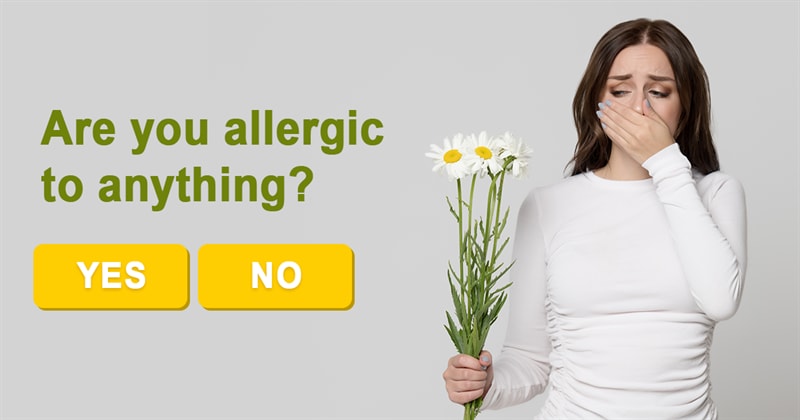Does having allergies mean that you have a decreased immunity?

No, allergy isn’t a sign of decreased immunity. It is a specific type of immune dysregulation. Autoimmunity, inflammatory disorders such as IBS and IBD, even cancer are examples of other types of immune dysregulation.
Quality and target of immune responses and not their strength is the core issue in allergy. Let's see how.
- Allergens, substances known to induce allergy, are common. Some such as house dust mite and pollen are even ubiquitous.
- Everyone is exposed to allergens yet only a relative handful are clinically diagnosed with allergy.
- Thus allergens don't inherently trigger allergy. They can but only in those predisposed to allergy, not in everyone.
- Each allergic person makes pathological immune responses to not all but to only one or a few structurally related allergens while the non-allergic don’t.
- Those diagnosed with allergy aren't necessarily more susceptible to other diseases.
If the immune response of each allergic person is selectively distorted when responding to specific allergens, what makes someone allergic? Obviously a mix of genetic and environmental factors.
Thing is allergy prevalence has spiked in recent decades, especially in developed countries. Too short a time period for purely genetic mutation-based changes to be the sole cause since that would take multiple generations to have such a population wide effect. That tilts the balance towards environmental change but what specifically?
Starting in the 1960s, epidemiologists began reporting a link between infections and allergy – more infections in childhood, less the allergy risk. Back then microbiota weren't even a consideration but now we have learned better so the Hygiene Hypothesis has expanded to include them.
Essentially, the idea is that the current Western style of living that rapidly developed over the 20th century fundamentally and dramatically reduced lifetime and crucially, early life exposure to environmental microorganisms, many of which would have normally become part of an individual's gut microbiota after they were born.
How could gut microbiota composition changes lead to selective allergies in specific individuals? Genetic predisposition should be taken as a given. However, natural history suggests that such predisposition transitioned to a full fledged clinical condition much more rarely in times past.
Let’s briefly consider how that equation might have fundamentally changed in recent times. Consider indoor sanitation, piped chlorinated water, C-sections, milk formula, ultra-processed foods, lack of regular contact with farm animals (as a surrogate for nature) and profligate, ubiquitous, even excessive use of antimicrobial products such as antibiotics, to name just a few important factors.
Though some of these were beneficial in their own way, epidemiological data now suggests that such innovations in living conditions also disrupted the intimate association with the natural world that had been the norm for human societies since time immemorial. In the process such dramatic changes appear to have profoundly reduced human gut microbiota diversity among many, mostly in developed countries.
Unbeknownst to us, an epidemic of absence*, as Moises Velasquez-Manoff evocatively puts it, has thus been invisibly taking place across many human societies over the 20th century in lock step with specific changes in living standards.
Such sudden and profound reduction in gut microbiota diversity thus emerges as the trigger that flips the normally hidden predisposition in some into clinically overt allergy. Actual mechanics of the process remain the subject of active research.
Have you ever thought about the nature of allergies?
Interesting Facts
7 amazing facts EVERYBODY should know!
7/22/2021
by
Della Moon
Keep reading to learn the least expected facts about a volcano that erupts blue lava, koalas and grasshoppers.
You never knew these 8 facts were actually true!
8/7/2021
by
Della Moon
Get ready for a set of big surprises, as you definitely never expected these 8 facts to be true...
4 signs you should be moving more
5/14/2021
by
Della Moon
Lack of movement can affect us in different ways and can even cause some long term harm. Check out 4 signs that you should start moving more.
7 amazing facts about regular household objects
6/21/2021
by
Della Moon
Our appliances and furniture may seem like not the most interesting things in our life, but once you read these 7 cool facts you'll change your opinion about some of them.
Surprising facts about the human heart
6/9/2021
by
brian l
Before humans knew anything about biology we knew the heart was essential to the human experience. Here are six facts about this amazing organ.
















